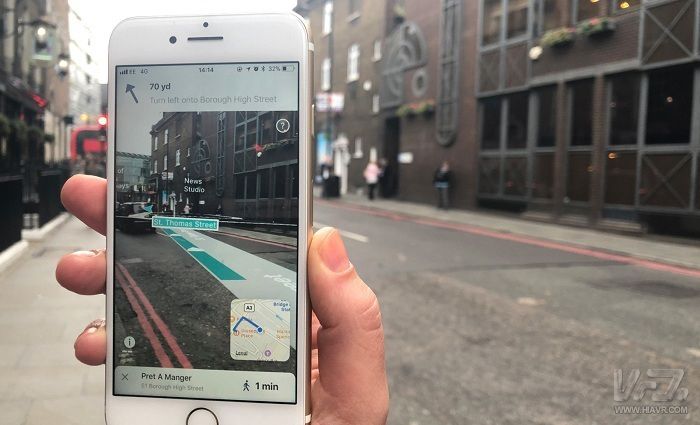Over the last decade, devices with Global Positioning System, commonly abbreviated as GPS, have proved to be powerful tools in assisting users navigate through city streets. Admittedly, they are not always as accurate as one would desire. In fact, they often spark off discussions as to who was right or wrong in interpreting the indication saying “turn left after 100 meters”. Whoever has been down that road before will find in augmented reality applications a promising alternative for achieving a more accurate and successful navigation. At least that is what Blippar’s AR City app claims to be.
Tech company Blippar aims to transform the way we travel across our cities. They plan to achieve this by merging AR with a specific branch of artificial intelligence known as “computer vision”. It has been only a couple of months since Blippar announced the launch of their new AR City app (currently in Beta), which gives users access to an enhanced map. The app overlays digital content, such as names of streets or points of interest onto the physical world captured by smartphone lenses. In short, it allows the camera to recognize and “see” the world as the human eye does, while providing information about the captured object.
GPS devices have long been challenged by the level of accuracy in determining the position and the direction of the user. Getting lost due to these imprecisions stops being a problem as soon as users immerse themselves in the 3D navigation system displayed on their smartphones.
As Ambarish Mitra, CEO of Blippar, explains: “The technology seamlessly combines the digital with the physical, and is a significant step in our mission to create AR natural enough that users don’t feel any disconnect”.
This technology is still in an early stage, but it has a foreseeable potential to drastically change the current way we perceive, engage with, and explore our environment. This is especially the case if one considers applying AR and computer vision to eye-wearable devices. These could end up being the more practical solution, since they would not confine our newly enhanced vision to the tiny screens of our phones.

Share your thoughts and join the technology debate!
Be the first to comment